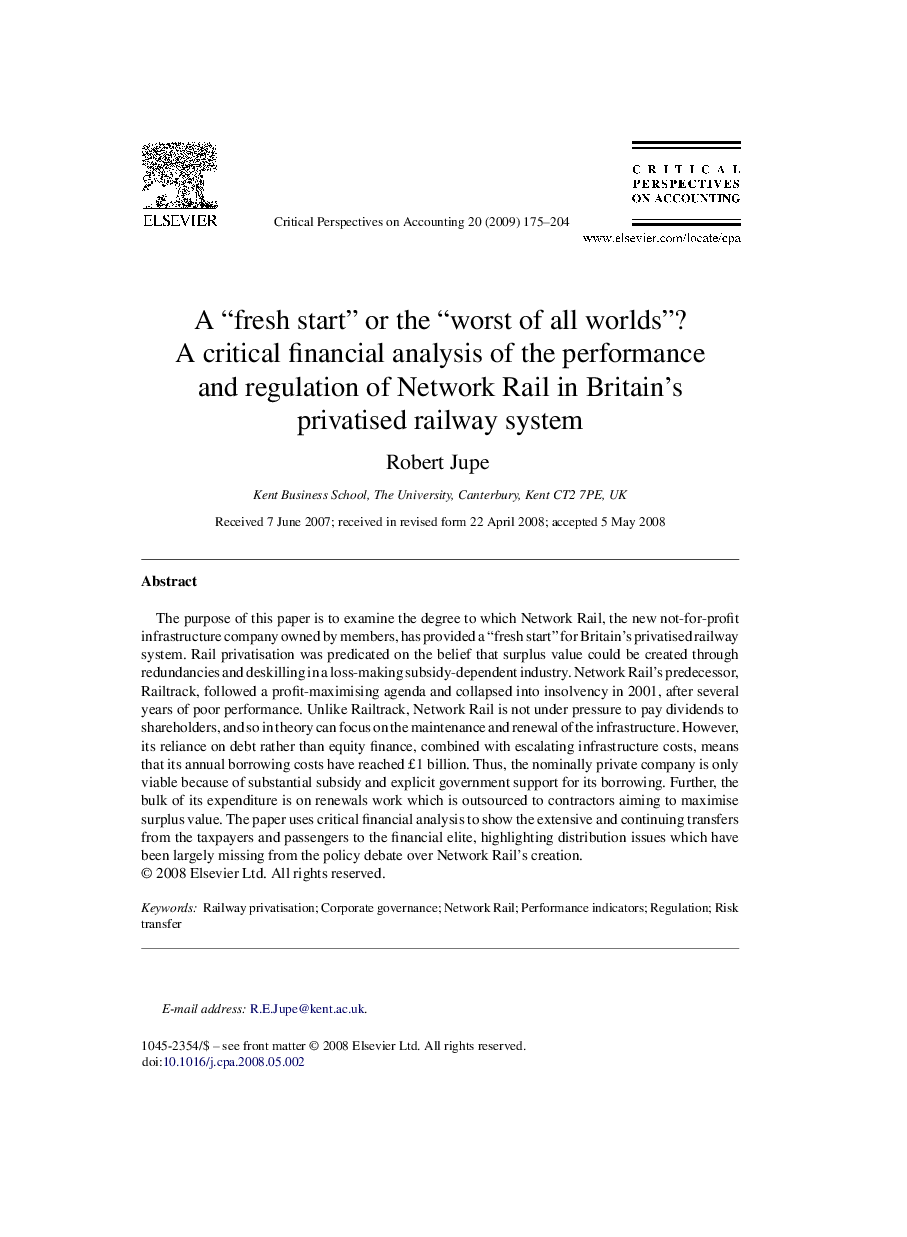| کد مقاله | کد نشریه | سال انتشار | مقاله انگلیسی | نسخه تمام متن |
|---|---|---|---|---|
| 1001718 | 937237 | 2009 | 30 صفحه PDF | دانلود رایگان |

The purpose of this paper is to examine the degree to which Network Rail, the new not-for-profit infrastructure company owned by members, has provided a “fresh start” for Britain’s privatised railway system. Rail privatisation was predicated on the belief that surplus value could be created through redundancies and deskilling in a loss-making subsidy-dependent industry. Network Rail’s predecessor, Railtrack, followed a profit-maximising agenda and collapsed into insolvency in 2001, after several years of poor performance. Unlike Railtrack, Network Rail is not under pressure to pay dividends to shareholders, and so in theory can focus on the maintenance and renewal of the infrastructure. However, its reliance on debt rather than equity finance, combined with escalating infrastructure costs, means that its annual borrowing costs have reached £1 billion. Thus, the nominally private company is only viable because of substantial subsidy and explicit government support for its borrowing. Further, the bulk of its expenditure is on renewals work which is outsourced to contractors aiming to maximise surplus value. The paper uses critical financial analysis to show the extensive and continuing transfers from the taxpayers and passengers to the financial elite, highlighting distribution issues which have been largely missing from the policy debate over Network Rail’s creation.
Journal: Critical Perspectives on Accounting - Volume 20, Issue 2, March 2009, Pages 175–204